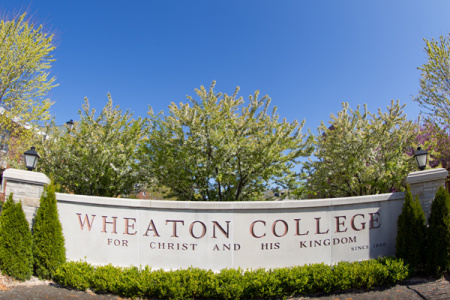Wheaton College Wins 5-Year Religious Freedom Battle Against Birth Control Mandate

Wheaton College has won a five-year battle to fulfil its Christian mission without having to provide services like the week-after pill and abortion-inducing drugs in its healthcare plans.
A district court judge has ruled that the government would violate federal civil rights laws if it forced the Illinois-based Christian liberal arts college to provide some services, which are required by the contraceptive mandate under the Obama administration's Affordable Care Act, against its religious beliefs.
The decision permanently protects Wheaton from any current or future version of the mandate, according to the nonprofit Becket Fund for Religious Liberty, which represented the college.
"The government is not above the law — that's why we have civil rights laws. Wheaton should never have had to go to court to protect its rights in the first place. This order ensures we won't have to come back," said Diana Verm, Wheaton alumna and legal counsel at Becket, said in a statement.
Wheaton President Philip Ryken said, "We are grateful to God that the court recognized Wheaton's religious identity and protected our ability to affirm the sanctity of human life. The government should never have tried to force us to provide drugs and services against our faith, and we are pleased by the resolution of our case."
A recent new HHS rule admitted the federal government violated the law and provided temporary protection to religious objectors. But judges in California and Pennsylvania halted the rule in late December.
Wheaton, which is guided by its religious mission "For Christ and His Kingdom," filed a lawsuit to defend its right in 2012 after receiving no response from HHS to its concerns. The college was founded by abolitionist Jonathan Blanchard in 1860.
The contraceptive mandate, which requires health insurance plans to offer birth control and abortion-inducing drugs, has gone to the Supreme Court five times, and each time the Supreme Court has ruled in favor of protecting religious groups.
In 2015, Wheaton had announced that it would no longer offer health insurance to its students to avoid conflicting with the institution's Christian convictions.
"What has brought us here is about student health insurance, but it's bigger than student health insurance," Paul Chelsen, Wheaton's vice president of student development, said at the time. "What really breaks my heart is that there are real people that are affected by our decision. But if we don't win this case, the implications down the road in terms of what the government will tell us what we can and cannot do will be potentially more significant."
In 2013, the Obama administration proposed accommodations concerning the contraceptive mandate, but pro-life and religious liberty groups pointed out that it did not meaningfully expand the "church-only" exemption and amounted to little more than a gesture.
"All Americans, not just those in church organizations, are guaranteed freedom of conscience in their daily lives and work," Alliance Defending Freedom Senior Legal Counsel Matt Bowman said at the time. "The administration's narrow gesture does nothing to protect many faith-based employers or religious families from the unconstitutional abortion pill mandate. The government has no business putting religious freedom on the negotiating table, or picking and choosing who is allowed to exercise faith."
"It is just another accounting gimmick and the HHS mandate continues to be a violation of civil rights, religious freedom and First Amendment rights," stated officials at The Catholic Association at the time. "Catholic institutions and other faith-based organizations, including hospitals and universities and private employers, still do not get their First Amendment rights back and are still being forced to either violate their faith or pay crippling government fines for practicing their faith."





















